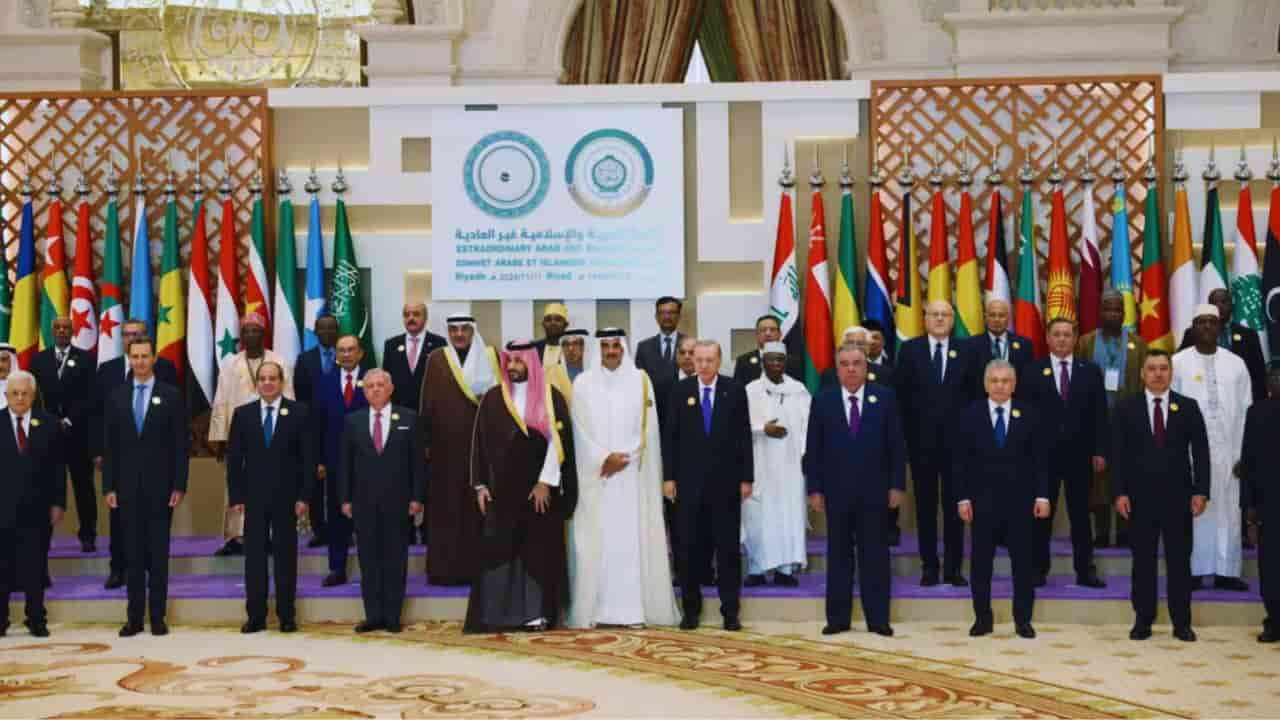Saudi Arabia Takes Strong Stance: Crown Prince Labels Gaza Conflict as ‘Genocide’
In a significant diplomatic development, Crown Prince Mohammed bin Salman has issued his strongest criticism yet of Israel’s military campaign in Gaza, describing it as “genocide” during a crucial summit of Arab and Muslim leaders in Riyadh.
The crown prince’s remarks represent a dramatic shift in Saudi Arabia’s diplomatic stance and come at a pivotal moment in Middle Eastern politics. Speaking at the joint summit of the Arab League and Organization of Islamic Cooperation, MBS declared that Israel’s actions have “claimed the lives of 150,000 martyrs, wounded and missing, most of whom are women and children.”
“The kingdom renews its condemnation and categorical rejection of the genocide committed by Israel against the brotherly Palestinian people,” the Saudi leader stated firmly. His words mark a notable hardening of rhetoric from Riyadh, which had been exploring potential normalization talks with Israel before the current conflict.
The high-stakes summit brought together key regional players, including Palestinian President Mahmoud Abbas, Turkish President Recep Tayyip Erdogan, and leaders from Pakistan and Nigeria. Their unified message called for an immediate ceasefire and condemned Israel’s actions in Gaza, Lebanon, and Iran.
The conflict erupted after Hamas’s October 7, 2023, attack on southern Israel, which resulted in approximately 1,200 deaths and the taking of 251 hostages. Israel’s subsequent military response has led to over 43,400 Palestinian casualties, according to Hamas-run health ministry figures.
In a show of regional solidarity, Prince Mohammed also warned Israel against launching attacks on Iranian soil, signaling a warming of relations between Riyadh and Tehran. China mediated their reconciliation agreement in March 2023, which has reshaped regional dynamics, leading to this diplomatic shift.
The summit highlighted several key demands:
- Israel has completely withdrawn from the West Bank and Gaza.
- The establishment of a Palestinian state with East Jerusalem as its capital is underway.
- End Israel’s settlement expansion within one year.
- UN aid agencies operating in Gaza are under protection.
Saudi Foreign Minister Prince Faisal Bin Farhan Al-Saud criticized the international community’s response, stating it had failed to stop Israel’s aggression and prevent what he described as deliberate starvation in Gaza.
The timing of these statements gains additional significance with Donald Trump’s return to the White House. Gulf leaders, while maintaining positive relations with Trump, are pressing for his influence in securing regional peace. Trump’s previous tenure saw the Abraham Accords, which normalized relations between Israel and several Arab states, but the current conflict has complicated future diplomatic initiatives.
Regional experts note that this evolving situation presents a more complex diplomatic landscape than during Trump’s previous administration. The ongoing Gaza conflict and the strengthened Saudi-Iranian relationship suggest significant challenges for any future peace initiatives.
The summit’s strong stance against Israel’s actions, particularly regarding the UN Palestinian refugee agency (UNRWA), reflects growing regional concerns. Israel’s recent ban on UNRWA operations in East Jerusalem has drawn criticism from multiple nations, including the US and UK, who worry about its impact on aid delivery to Gaza.
As the conflict continues to evolve, Saudi Arabia’s position appears increasingly aligned with other regional powers in calling for immediate action to end the humanitarian crisis in Gaza and work toward a lasting peace solution that ensures Palestinian rights and regional stability.
